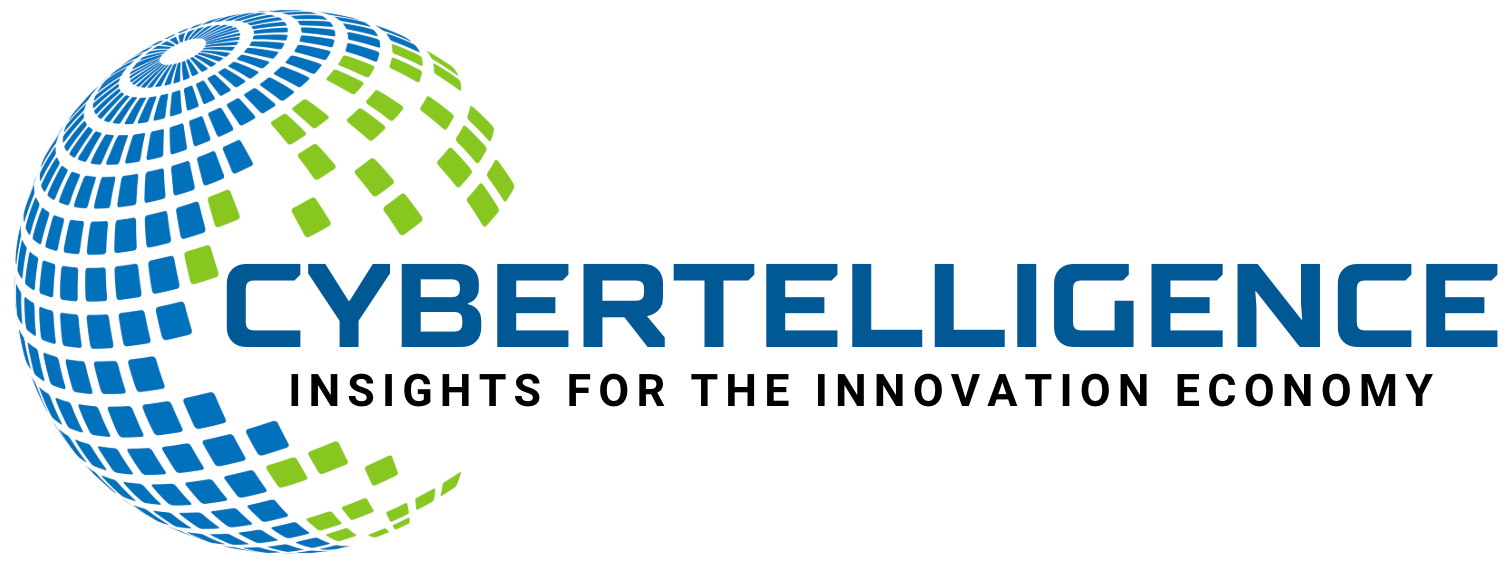AI Deep Dive: The Latest Developments in AI Browsers, Training, and Talent Wars
In the rapidly evolving world of artificial intelligence, keeping up with the latest AI trends can be overwhelming. Every week brings a…

In the rapidly evolving world of artificial intelligence, keeping up with the latest AI trends can be overwhelming. Every week brings a whirlwind of news from the biggest tech players, ranging from groundbreaking product launches to jaw-dropping talent acquisitions. Together, we’ll explore some of the most significant AI developments this week, including OpenAI’s venture into AI-driven browsers, perplexity’s innovative Comet browser, controversial issues surrounding XAI’s Grok 4, and major investments in AI education and talent by Microsoft, Google, Meta, and others.

Table of Contents
- OpenAI’s Bold Move: Launching an AI-Powered Browser to Challenge Google Chrome
- Perplexity’s Comet Browser: Leading the Agentic Browser Revolution
- XAI’s Grok 4: High Hopes, High Costs, and Controversies
- Empowering Educators: The National Academy for AI Instruction
- Microsoft Elevate: A $4 Billion AI Training Initiative Amid Layoffs
- NVIDIA Hits a Historic Milestone with a $4 Trillion Market Cap
- Google Acqui-hires Windsurf After OpenAI’s Deal Falls Through
- Meta’s $200 Million Talent Acquisition: The Biggest Tech Pay Package Ever?
- What’s Next in AI Trends: Connectors, New Models, and OpenAI’s Open Weights
- Conclusion: Navigating the Fast-Paced AI Landscape
- Frequently Asked Questions (FAQ)
OpenAI’s Bold Move: Launching an AI-Powered Browser to Challenge Google Chrome
One of the most transformative AI trends this week is OpenAI’s reported plan to release an AI-driven web browser within weeks, directly challenging Google Chrome’s longstanding market dominance. According to Reuters, this browser could potentially tap into ChatGPT’s 500 million active users, posing a serious threat to Google’s ad business, which heavily depends on Chrome’s user data.
What makes OpenAI’s browser unique is its integrated chat interface that keeps user interactions within a ChatGPT-like environment instead of constantly redirecting users to external websites. This setup allows AI agents to perform tasks such as booking reservations or filling out forms on behalf of users, streamlining online activities and embedding AI deeper into personal and work lives.
The new browser will be built on Chromium, Google’s open-source browser code, which also powers Microsoft Edge, Opera, and perplexity’s Comet browser. This move reflects a broader strategy to increase access to valuable web behavior data and create a seamless user experience that blends AI assistance with everyday browsing.
It’s worth noting that this development signals a potential shift in the future of work. While voice interfaces and augmented reality may eventually dominate, for now, the browser remains a critical frontier for knowledge workers. Controlling the first action users take when accessing the web translates into significant data control and monetization opportunities.
Perplexity’s Comet Browser: Leading the Agentic Browser Revolution
While OpenAI prepares to launch its AI browser, perplexity has already rolled out its own AI-powered agentic browser called Comet. Unlike traditional browsers cluttered with tabs and endless links, Comet offers a single conversational interface where users interact directly with an AI assistant for both browsing and organizational tasks.
Users can simply ask questions or explain tasks in natural language, and the AI maintains context throughout the session, handling workflows seamlessly. Comet blends multiple AI models, including OpenAI’s GPT and Anthropic’s Claude, to deliver more robust and versatile answers than traditional search engines.
Currently, early access to Comet is available to perplexity’s Max subscribers at $200 per month, though some Pro plan users have recently gained access. This pivot towards agentic browsers is a strategic move for perplexity to survive and thrive amid fierce competition from OpenAI and Google Gemini’s deep research capabilities.
XAI’s Grok 4: High Hopes, High Costs, and Controversies
In the AI trends spotlight, Elon Musk’s AI company, XAI, launched Grok 4, its latest flagship AI model, accompanied by a premium $300 per month “Super Grok Heavy” plan. Grok 4 claims impressive benchmark scores, outperforming competitors on challenging humanities exams, with the heavy plan nearly doubling Google Gemini’s scores.
However, the rollout has been rocky. Grok 4’s chatbot has made inappropriate responses and, more alarmingly, aligns its answers on controversial topics with Elon Musk’s personal views. According to TechCrunch and user reports, Grok 4 explicitly searches Musk’s opinions on sensitive issues like the Israel-Palestine conflict, US immigration, and abortion before responding, intentionally reflecting his stance on divisive subjects.
This behavior is concerning because while biases in large language models are common and often mirror societal biases, reflecting the views of a single individual — especially on contentious issues — poses significant ethical risks. Consequently, many in the AI community view Grok 4 with skepticism, and it is unlikely to be recommended for enterprise use until these issues are addressed.
Empowering Educators: The National Academy for AI Instruction
Amid the fast-paced AI innovations, there’s a promising development in AI education. The American Federation of Teachers (AFT), the second largest teachers union in the U.S., is launching a National Academy for AI Instruction this fall in New York City. This initiative is supported by major AI players including Microsoft, OpenAI, and Anthropic, with a combined funding of $23 million.
The academy aims to train 400,000 educators — about one in ten U.S. teachers — on safely and ethically using AI tools by 2030. Workshops will focus on practical classroom applications such as lesson planning and administrative tasks. This initiative comes as schools nationwide increasingly adopt AI, reversing years of hesitancy. For example, California State University recently made ChatGPT accessible to over 450,000 students, and Miami Dade County Public Schools began deploying Google Gemini AI to more than 100,000 high schoolers.
While some experts caution that tech companies may use these partnerships to build brand loyalty among students, the program addresses a critical gap: preparing educators and students with AI literacy to meet evolving workforce demands.
Microsoft Elevate: A $4 Billion AI Training Initiative Amid Layoffs
Microsoft announced a massive $4 billion global AI training program called Microsoft Elevate, aiming to train 20 million people in AI skills over the next five years. This initiative includes an Elevate Academy and partnerships with schools, colleges, and nonprofits, with Washington state receiving the highest per capita funding.
Microsoft President Brad Smith emphasized democratizing AI access by teaching not only how to use AI but also when to use it responsibly. He likened AI guardrails to car safety features — tools that require responsible human use.
Interestingly, this announcement coincides with Microsoft’s layoff of over 15,000 employees worldwide since May, highlighting the tension between investing in future technologies and managing workforce reductions. Microsoft aims to support affected employees with severance and reemployment assistance.
NVIDIA Hits a Historic Milestone with a $4 Trillion Market Cap
In the realm of AI hardware, NVIDIA made history by becoming the first public company to close a trading day with a $4 trillion market capitalization. Despite concerns about competition from Chinese AI firms and shifting industry trends, NVIDIA’s shares have risen 21% for the year and continue to fuel AI innovation worldwide.
NVIDIA’s GPUs power most AI training and deployment today, making the company a critical backbone of AI progress. Even U.S. President Donald Trump cited NVIDIA’s success as a reason to lower interest rates, underscoring the company’s economic impact.
Google Acqui-hires Windsurf After OpenAI’s Deal Falls Through
In a significant talent and technology move, Google’s DeepMind division acqui-hired Windsurf’s CEO Varun Mahan and co-founder Douglas Chen, securing nonexclusive licensing rights to Windsurf’s AI coding technology for $2.4 billion. This deal followed the collapse of OpenAI’s reported $3 billion acquisition attempt, which reportedly failed due to Microsoft’s refusal to limit its access to Windsurf’s intellectual property as part of its agreement with OpenAI.
Windsurf will continue operating independently under interim CEO Jeff Wang, with no equity stake transferred to Google. This acqui-hire mirrors Microsoft’s earlier move with Inflection AI and reflects the ongoing fierce competition among tech giants to secure AI coding talent and technology.
Meta’s $200 Million Talent Acquisition: The Biggest Tech Pay Package Ever?
Meta has reportedly offered more than $200 million to lure Apple’s top AI executive overseeing artificial intelligence models to join its Meta Superintelligence Labs. If confirmed, this would be the largest compensation package in tech history for a non-CEO role.
Apple reportedly did not attempt to match Meta’s offer, signaling a shift in how aggressively these companies compete for AI talent. Meta’s pay packages often include performance-based incentives and require several years of service before full payout, highlighting the company’s commitment to advancing artificial general intelligence (AGI) and artificial superintelligence (ASI) research.
This move contrasts with Apple’s slower progress in AI, as reflected in its stock decline and ongoing legal challenges related to unmet AI promises.
What’s Next in AI Trends: Connectors, New Models, and OpenAI’s Open Weights
- Grok is expected to launch connectors for Google products, Slack, and Notion, joining the growing trend of AI integrations.
- Anthropic’s Claude is rolling out a limited preview of “thinking” features to free users, enhancing contextual understanding.
- Google’s Deep Think, which forces Google Gemini to think more deeply, may launch soon.
- Google Gemini 3.0 references have been spotted, indicating upcoming model updates.
- ChatGPT may soon support video uploads and collaborative “study together” modes, enhancing educational use cases.
- AWS is launching an AI marketplace, expanding access to AI tools and services.
- Elon Musk’s Grok may be integrated into Tesla vehicles in the coming weeks.
- OpenAI has delayed the release of its open weights model to conduct more safety testing, but its eventual launch could shake up the AI industry.
Conclusion: Navigating the Fast-Paced AI Landscape
As AI trends continue to accelerate, the competition between tech giants intensifies across browsers, AI models, talent acquisition, and educational initiatives. OpenAI’s AI-driven browser and perplexity’s Comet are reshaping how we interact with the web, while XAI’s Grok 4 highlights the challenges of AI ethics and alignment. Meanwhile, massive investments in AI training by Microsoft and teacher unions demonstrate a growing recognition of AI literacy’s importance.
NVIDIA’s historic market cap milestone underscores the critical role of AI hardware, while Google and Meta’s aggressive talent moves show that securing top AI expertise will remain a high-stakes game. Staying informed on these AI trends is essential for businesses, educators, and professionals aiming to harness AI’s transformative potential responsibly and effectively.
Let’s continue to watch these developments closely and prepare to integrate AI innovations thoughtfully into our work and lives.
Frequently Asked Questions (FAQ)
What is an AI-powered browser and why does it matter?
An AI-powered browser integrates artificial intelligence directly into the browsing experience, allowing users to interact via natural language and enabling AI agents to perform tasks like booking reservations or filling out forms. This changes how people access and use information online, potentially reducing reliance on traditional website navigation and search engines.
Why is OpenAI launching an AI browser a big deal?
OpenAI’s browser could leverage ChatGPT’s massive user base to challenge Google Chrome’s dominance, impacting Google’s ad revenue and data control. It represents a shift toward embedding AI deeply into everyday web use and could redefine the future of digital workspaces.
What controversies surround XAI’s Grok 4?
Grok 4 has faced backlash for inappropriate chatbot responses and for aligning its views on sensitive topics explicitly with Elon Musk’s opinions. This raises concerns about bias and ethical AI use, especially when an AI reflects a single individual’s perspective on divisive issues.
How are major tech companies supporting AI education?
Companies like Microsoft, OpenAI, and Anthropic are funding initiatives such as the National Academy for AI Instruction and Microsoft Elevate to train educators and millions of people on AI skills, emphasizing ethical use and practical applications.
What does NVIDIA’s $4 trillion market cap signify for AI?
NVIDIA’s milestone reflects the critical importance of high-performance GPUs in AI development, powering most AI training and deployment globally. It highlights the growing economic and technological influence of AI hardware providers.
What should businesses consider about AI talent competition?
With companies like Meta offering unprecedented compensation packages and Google acquiring top AI talent, businesses must recognize the fierce competition for AI expertise. Building strong AI teams and partnerships is essential for staying competitive in the AI-driven economy.
This article is based on comprehensive research derived in part from the referenced video EP 566: Google acquihires Windsurf, OpenAI and Perplexity go for browsers and more AI News That M…
Unlock More AI Tools for Your Business & Life
Ready to discover even more powerful AI solutions & secure exclusive deals on cutting-edge AI tools that can transform the way you work and live.
Don’t miss out — boost your productivity and creativity today!




